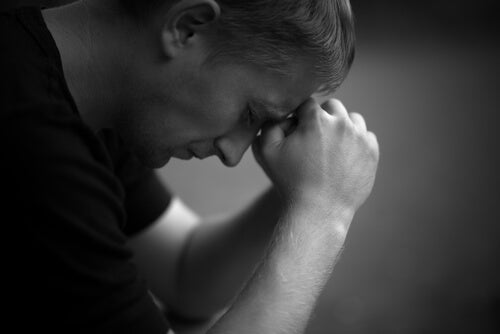Surviving Cancer and What Happens Next


Written and verified by the psychologist Valeria Sabater
Surviving cancer is the main goal of every person who faces this disease. In recent years, science has made significant advances and these have undoubtedly contributed to a higher survival rate. However, what happens after the end of treatment? What’s life like for a person who’s trying to return to normal after this period of strenuous physical and psychological wear and tear?
Medical institutions often neglect the psychological challenges a person faces when they finish their chemo cycles and receive the news that all is well. At first glance, it may seem that the first thing the patient would experience is relief and happiness. However, those who’ve been through this complex journey know this isn’t always the case.
There’s always a second stage after the expected diagnosis. The check-ups begin and last for at least five years, so these people are constantly in fear of relapsing. In addition, a roller coaster of emotions pervades and they don’t always know how to handle them or how to vent. Surviving cancer has a high psychological price that people don’t always take into account.
The medical and psychological effects of cancer are well-known. However, it’s only now becoming clear that survival itself is also an important phase of the cancer journey.

Surviving cancer: physical and psychological effects
Chemo is over and the patient’s hair begins to grow back. They stop spending endless hours connected to an IV. The sensations, the pain, the doctor’s visits, the surgeons, the faces of the friendly assistants… All of this is now a memory, a nightmare of mixed feelings, halfway between panic and hope.
Surviving cancer goes beyond the disease itself. So much so that oncology psychologists know that patients must shape a new stage of their life. One that’s still linked to the disease itself in many ways. The after-effects that remain often force them to be aware of new surgeries (such as, for example, breast reconstruction after a mastectomy).
Thus, something health organizations point out is that support for cancer survivors is indispensable but often neglected. In addition, their family also demand specialized support to deal with everything they’ve experienced in many cases. This is because they need to understand the personal reality that the mother, father, or son who’s overcome cancer is going through.
What does a patient experience after treatment?
Every person experiences illness and subsequent survival in their own way. Each experience is unique and depends on the personality, the support received, and also on the length of time that a patient’s been undergoing interventions and treatments. However, on average, it’s common for the following to occur when a patient survives cancer:
- Physical problems.
- Recurrent fatigue.
- Changes in memory and concentration (chemo brain).
- Neuropathies (pain associated with changes in the nervous system). Some examples are tingling in hands and feet, burning sensation, motor clumsiness, problems with weight lifting, etc.
- Lymphedema and swelling (especially after breast cancer).
- Digestive and intestinal problems.
- Weight changes.
- Oral problems.
- Ailments and organic disorders associated with the interventions and effects of the disease.

Psychological problems
- Low self-esteem due to possible physical changes.
- Problems unburdening emotions.
There’s a need to give new meaning to life. Their mind tells them they should feel happy for having overcome the disease, but this feeling isn’t always there. Fear and distress continue in many cases.
There’s constant uncertainty as to whether they’ll be able to perform well at work.
Possible problems in their relationships
It’s also common to experience the so-called “Damocles syndrome”, which is the constant fear that cancer will return again at some point. It’s recurrent anguish, a shadow that hangs over a person like a sword that can fall at the most unexpected moment.
How to move forward after surviving cancer
Indeed, facing cancer can be the hardest stage of a person’s life but so is surviving it. Be aware that there’ll be other problems, even though a person may be discharged after five years and the disease has supposedly subsided. There are late-onset diseases, and there are effects of the disease and treatment that, in many cases, become chronic.
Those who overcome cancer miss the follow-up and medical and psychological supervision of their condition after they’re discharged. Many feel alone, neglected, and that they don’t enjoy a good quality of life.
Also, surviving cancer sometimes means not perceiving any real understanding on the part of those closest to the victim. This is because everyone expects them to feel lucky for overcoming the disease, and many are unable to experience joy and happiness.
What to do in these cases? Ideally, they should go to a support group. Being able to talk to people who’ve gone through the same thing always helps. It’s also essential to take care of your lifestyle and eating habits, make changes, and have new goals on the horizon to recover the meaning of life and the projection of the future.
Last but not least, seek the help of professionals specialized in this area: doctors, psychologists, therapists, etc. There are many well-trained health professionals around the world.
All cited sources were thoroughly reviewed by our team to ensure their quality, reliability, currency, and validity. The bibliography of this article was considered reliable and of academic or scientific accuracy.
- Harrington, C. B., Hansen, J. A., Moskowitz, M., Todd, B. L., & Feuerstein, M. (2010). It’s Not over When it’s Over: Long-Term Symptoms in Cancer Survivors—A Systematic Review. The International Journal of Psychiatry in Medicine, 40(2), 163–181. https://doi.org/10.2190/PM.40.2.c
This text is provided for informational purposes only and does not replace consultation with a professional. If in doubt, consult your specialist.








